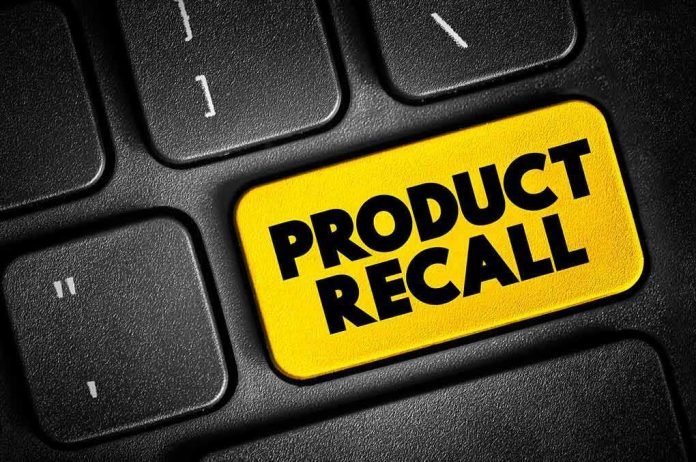
Imagine trusting a kitchen appliance to make your dinner—only to end up in the ER with severe burns because its lid pops open before the steam is gone.
Story Snapshot
- Over 46,000 Ambiano pressure cookers sold at Aldi recalled nationwide for dangerous burn hazard
- Lid design flaw allows opening before pressure release, causing scalding injuries
- Federal regulators and Aldi move fast to remove products and offer refunds after multiple severe burns
- Recall spotlights deeper issues in appliance safety, oversight, and consumer trust
Pressure Cooker Panic: When Dinner Turns Dangerous
Pressure cookers have always promised speed and convenience, but the recall of over 46,000 Ambiano electric pressure cookers from Aldi stores forces a sobering question: How much do we really trust what we bring into our kitchens? Between 2016 and 2019, these cookers, imported by Tempo USA, flew off shelves nationwide. Few imagined a design flaw could let a lid swing open before pressure was safely released, transforming a common dinner prep into a burn unit disaster. Eleven incidents, eight involving severe burns, shattered that trust and triggered a nationwide recall in October 2025, sending a jolt through households and the retail industry alike.
Consumers who thought they were buying reliability instead found themselves battling medical emergencies and bureaucracy. For some, a simple chili night turned into a scalding ordeal. The U.S. Consumer Product Safety Commission (CPSC) stepped in, demanding urgent action. Aldi and Tempo USA responded: stop using these models immediately, return them for a refund or submit photos for remote reimbursement. The message from regulators: product safety isn’t optional, and the cost of getting it wrong is paid in pain, lawsuits, and public confidence.
Product Recalls and the Anatomy of Accountability
Regulatory agencies exist for moments like this. The CPSC, wielding federal authority, forced the recall and shined a harsh spotlight on all the players—retailers, importers, designers. Aldi’s reputation as a low-cost, high-value grocer took a hit; Tempo USA, the importer, faced the logistical nightmare of refunding thousands of customers and fielding complaints. The recall process itself, while fast-tracked, is an exercise in damage control: consumers are told to bring products back or submit proof, but for those already injured, the remedy feels far from adequate. Each injury report is a line item in a growing ledger of liability and lost trust.
Pressure cookers sold at ALDI recalled after multiple severe burns reported https://t.co/XQYwCJ0iKH
— FOX61 (@FOX61News) October 11, 2025
Pressure cookers have faced recalls before, but the scale and severity here set this case apart. The Ambiano models—6-quart, 8-quart, and specific serial numbers—were sold exclusively at Aldi. Exclusivity didn’t immunize them from scrutiny; it concentrated the spotlight. The CPSC’s action is a warning shot to the entire appliance industry: shortcuts in safety design or testing will not be tolerated. Retailers and their suppliers must ensure products can’t be opened under pressure—full stop.
The Ripple Effect: Industry, Oversight, and Consumer Confidence
Industry experts, consumer advocates, and engineers dissect the recall’s implications. The consensus: pressure cookers are inherently risky, and fail-safes are non-negotiable. Any flaw in a pressure release system can—and does—lead to catastrophic injury. Consumer advocates press for more transparent recalls and faster compensation for victims. Safety engineers point out that cost-cutting and inadequate testing are often behind such design flaws, and call for stricter pre-market testing by objective third parties. Some argue that retailers, not just importers, should shoulder greater responsibility for the products they put on shelves. This event amplifies the call for robust, independent oversight and more aggressive recall protocols.
For consumers, the episode is a rude awakening. The expectation that a product—especially one sold by a trusted retailer—will be safe is no longer a given. The economic fallout is immediate: Aldi and Tempo USA incur costs for recalls, refunds, and potential lawsuits. The social cost is less quantifiable but more insidious: increased anxiety over product safety and eroding faith in regulatory systems. Politically, the recall may fuel demand for tougher appliance safety laws and more transparency from both brands and regulators. The entire sector faces renewed scrutiny, and the true cost of this design flaw will be measured not just in dollars, but in the vigilance it forces upon everyone involved.



